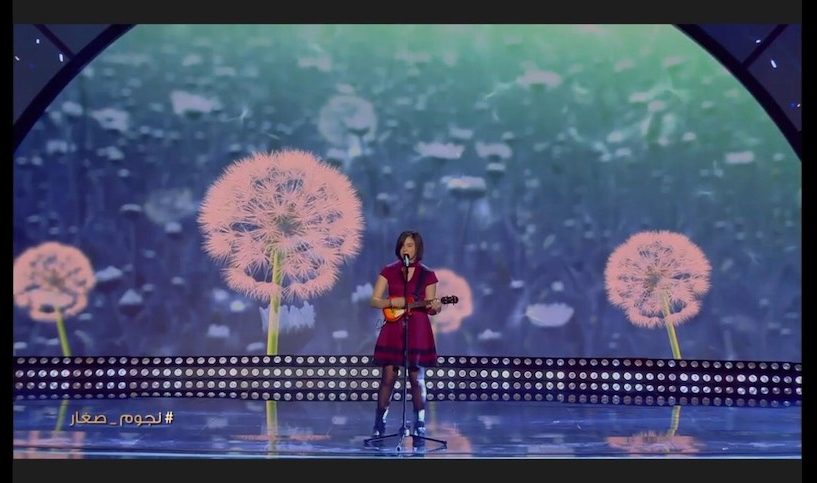Noor Qaddoumi, at the age of thirteen, decided to turn an experience of being bullied into an opportunity to speak out on behalf of victims of bullying and to encourage others not to suffer in silence. She wrote an original song titled “Don’t Hide Out” accompanied by the ukelele, exhibiting her musical prowess along with a passion for singing. Now at fourteen years of age, Noor has become an inspirational figure at her school and within the community of her peers. Here, she discusses the song and how she turned a negative experience into a positive one.
Noor, in your song, you encourage people not to hide bullying from others. Why do you think so many of your peers are afraid to report cases of bullying?
In my opinion, it’s either because they feel they are a target and the bully will retaliate against them, or they don’t want to be recognized as a victim.
In “Don’t Hide It”, a victim is described as “stuck on an island, hiding… away.” Is there a reason why victims isolate themselves from others?
I guess they don’t want to confront their feelings while talking about the incident in front of others. They feel safe alone.
Do you find that using creativity to express ourselves can heal a bit of our trauma?
Sure. It doesn’t only heal the trauma, but it also helps to solve the problem in a positive way.

Have many others approached you about their bullying after you released the song?
Yes, a lot of people have approached me to tell me about their own experiences and stories and how my song helped them to express their feelings. They have supported and encouraged me to continue on that track. Besides that, I have found that the media is very interested in highlighting this issue, not only locally but also internationally. I have been approached by media outlets to discuss this matter.
Finally, many students do not feel comfortable telling their parents or teachers when they are being bullied. What is the reason for this? And as a young adult, what advice would you give to adults regarding how to react or respond to a child or teenager who is being bullied without making the victim regret his/her decision— as is oft the case?
I guess the reason is that victims of bullying feel ashamed because they think it is their fault that they are being bullied. They’re also scared of the consequences. And, in my opinion, an adult’s responsibility is to educate their kids, talk to them, assure them that they are always there to support them because they care for and love them.
For more on Nejoud Al Yagout, check out @coexistkuwait on Instagram.











